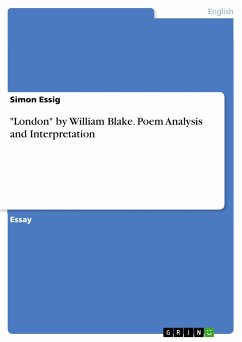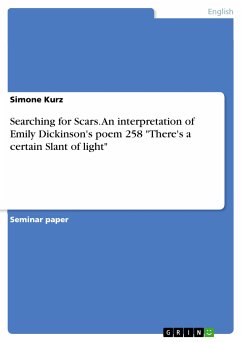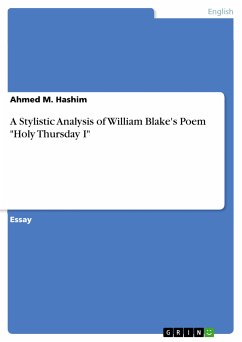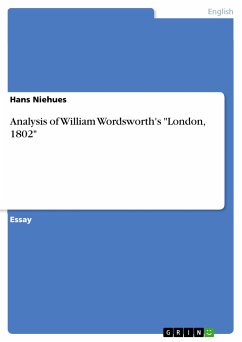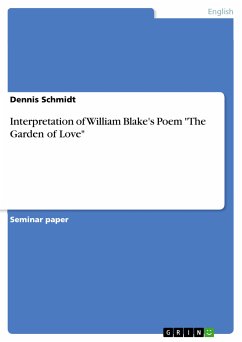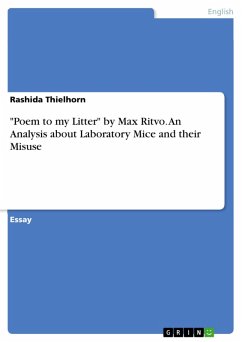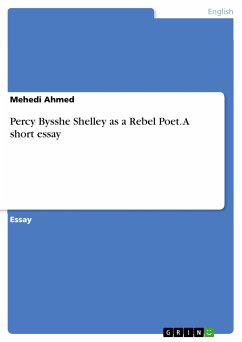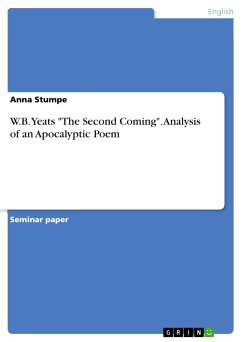Essay from the year 2020 in the subject English Language and Literature Studies - Literature, grade: 1,0, University of Tubingen (Englisches Seminar), course: Introduction to Literary Studies, language: English, abstract: "London" is a poem by William Blake published in 1794 in his work "Songs of Experience". The poet, engraver and craftsman was born in 1757 in London where he spent almost his entire life. He published his poems engraved in a script embellished with illustrations. Blake was known as a "non-confomirst" which refers to a religious group that had seperated from the Church of England and that was critical to the government. The poet and his work are part of the early Romantic period which is characterized by the rejection of the ideals, values and beliefs of classicism and neoclassicism such as restraint emotionality or objectivity. Instead a freer and more subjective expression of passion, pathos and personal feelings was pursued. Furthermore, Romantic thoughts proceeded social and political reactions against oppression and the stereotypes of Christian thinking. The lyrical I in "London" describes his or her impressions and his individual experience while walking through the streets of the city of London. The lyric person as a wanderer perceives on his journey many negative realities. Strong and dramatic expressions with destructive connotations were used by Blake to create a melancholic and sorrowful atmosphere of London's streets (marks of weakness and woe, cry, fear, ban, sigh, blood, blights and plagues). The capital city and its inhabitants were found in a terrible condition of child labor, war and prostitution.
Dieser Download kann aus rechtlichen Gründen nur mit Rechnungsadresse in A, B, BG, CY, CZ, D, DK, EW, E, FIN, F, GR, HR, H, IRL, I, LT, L, LR, M, NL, PL, P, R, S, SLO, SK ausgeliefert werden.

